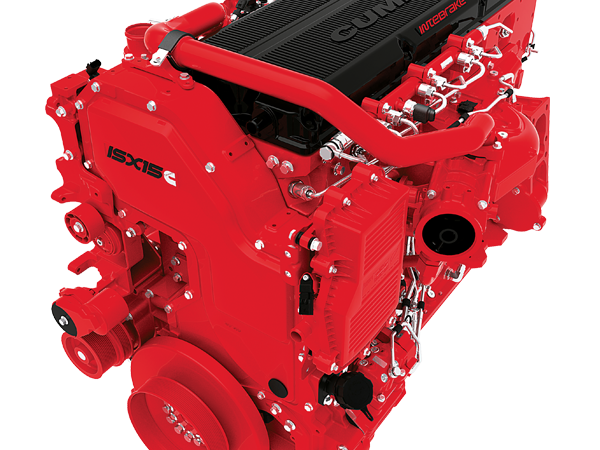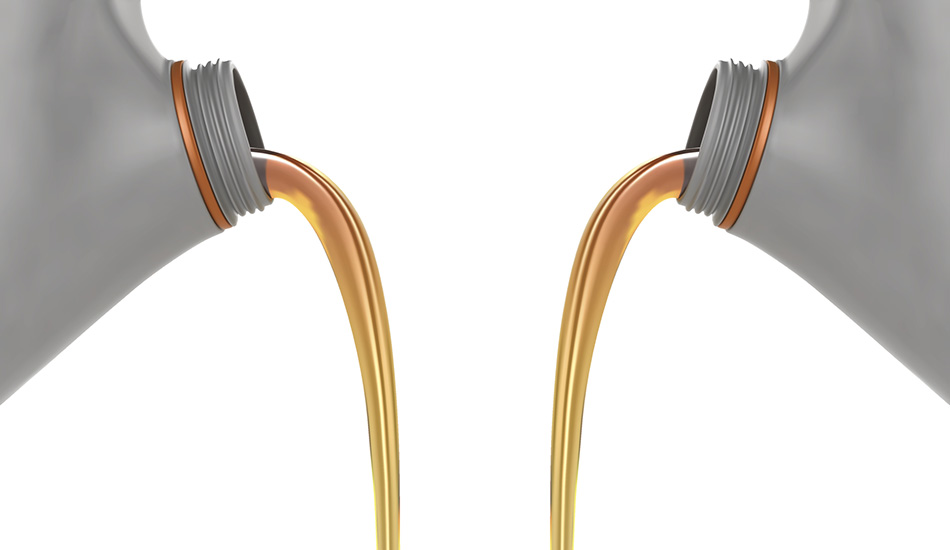The use of synthetic motor oil compared to the general petroleum type has been the center of many discussions throughout the years. While there have always been two sides, each favoring their choice, there is no question that synthetic oil is superior. However, is that superiority a needed benefit in a motorhome application, and can the greater cost even be justified?
 Well, first of all, it is important to understand that today’s petroleum motor oils are far better than those that were available decades ago. They all contain specially developed additives that produce excellent results in the lubrication, cleaning and cooling of today’s close tolerance engine clearances. There is absolutely no reason to believe that this oil is not capable of operating for the life of the vehicle providing the required changes and related maintenance is carried out as specified by the engine maker.
Well, first of all, it is important to understand that today’s petroleum motor oils are far better than those that were available decades ago. They all contain specially developed additives that produce excellent results in the lubrication, cleaning and cooling of today’s close tolerance engine clearances. There is absolutely no reason to believe that this oil is not capable of operating for the life of the vehicle providing the required changes and related maintenance is carried out as specified by the engine maker.
Synthetic Motor Oil Upsides
So why would anybody pay three or four times more money for the synthetic brand? What are some of the benefits that this may deliver?
- Ability to operate better in extreme temperatures. Synthetic oil maintains its viscosity far better than that of regular petro types when exposed to sub-zero temperatures. Additionally, it performs better and resists coking at extreme temperatures.
- Synthetic oil adheres better to cylinder walls and like components during long idle periods. This feature is of particularly advantage for the RV application, given the usage frequency. (Engine manufactures state that up to 90% of wear is attributed to start up.)
- Synthetic oil has less of a tendency to evaporate at high temperatures. Evaporation results in thickening the lubrication oil.
- Synthetic oil definitely runs cooler due to reduced friction.
- Synthetic oil does not oxidize and form sludge over time.
However, all that said, either product will do the job. The synthetic oil is more forgiving in cases such as the operator of a turbo-equipped engine shutting down while still extremely hot, the need to extend an oil change schedule (not recommended as a practice), and perhaps reducing fuel consumption. (Not easily measured).
Synthetic Motor Oil on Balance
So, as it would appear, there are tangible benefits derived from spending the extra bucks for synthetic oil, but probably not substantial enough to warrant the increased cost. But don’t believe anyone who says there is no difference. Given the choice at the same cost, they would all go for it, too. If they say they wouldn’t, they are probably not being truthful with themselves.
Peter Mercer — With a Look From The Grease Pit







Peter Mercer
Thank you for your input on this topic.
Anonymous
Synthetics don’t contain the impurities and molecular irregularities inherent to conventional oils. Synthetics’ pure, uniform molecular structures impart properties that provide wear protection, extreme-temperature performance and fuel efficiency conventional lubricants just can’t touch – all of which helps you save money with vehicles that run better and last longer.
Anonymous
FWIW: My ’96 Chevy 350cu.in./5-speed/3.08 is at 302,225 miles using MobilOne, and mostly in northern US/Canada climate…..and 171,222 of that towing 4,550# curb wt. TT. Fourty-eight DIY oil/filter changes. Without a thorough, disassembled compression check, the 350 is still within 5% of original, advertised factory compression, and average MPG for the entire life of it is 17.7MPG. Still has original Cat.Conv., alum. exhaust system, trans., and rear end; it’s on it’s 2nd clutch. A few very minor dings, but no rust even though it lives primarily in the “rust belt!”) Engine/trans./rear end are “untouched/reg. maintained & original.” As far as I’m concerned, other than sensible & important operation and PM habits/driving, the primary reason for it’s longevity is MobilOne! I can say with a great deal of personal certainty that the cost of MobilOne has been far less than the average typical maintenance (rebuild/replacement) of GM 350s using conventional oil. My Dad’s ’76 Winnebago Brave 360(261,743 miles) and my ’04 Toyota Highlander LT 3.3(174,910 miles) are living similar lives! (NOTE: For many of the “MobilOne years,” the cost wasn’t even double that of conventional oil.)
Anonymous
Thanks for the informative piece. I wonder, however, what you suggest for the change interval for the synthetic oil might be. You suggest the idea of using synthetic oil to increase the interval between oil changes of the synthetic oil is in error on the part of the user.
Thanks again,
[email protected]
Anonymous
Thanks for such informative blog. Hope it will be helpful for all the reader as well.For related information visit us at: Cerma Industries LLC
Anonymous
Awesome info! I just bought a 2003 Winnebago 36 ft class A motor home and I was contemplating the first oil change with synthetic vs organic oil. Definitely going with organic oil.
Anonymous
BEST, BY FAR.